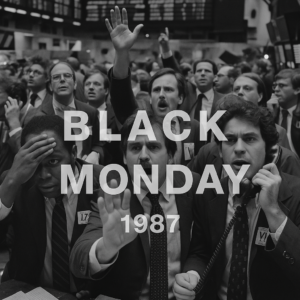Gold prices rose on Friday, poised for their first weekly decline in six weeks as concerns over a major escalation in the Middle East crisis eased. Over the week, prices fell 2.3%, heading for their biggest weekly drop since early December, after avoiding a major escalation in the Middle East crisis. Prices have fallen by about $100 from their all-time high of $2431.29 on April 12.
Data showed that US economic growth slowed more than expected in the first quarter, but rising inflation highlighted comments from Fed officials that they were in no hurry to cut interest rates. Higher rates reduce the attractiveness of holding gold, which does not yield interest.
The preliminary reading of US GDP showed 1.6% growth on an annual basis in the first quarter, below the 2.5% economists had forecast and a slowdown from 3.4% growth in the fourth quarter of 2023. Data from the US Department of Labor showed that initial jobless claims fell by 5,000 to 207,000 in the week ended April 20, against expectations of a rise to 214,000 from the previous week’s unrevised reading of 212,000.
The focus now shifts to the March personal consumption expenditures (PCE) price index data, due later on Friday – the Fed’s preferred gauge of inflation – for more clues about US interest rate expectations.
Gold and the Dollar Now
Gold futures are now up 0.53% to $2354 an ounce. Spot gold is up about 0.43% to $2342 an ounce. On the other hand, the dollar index is steady at 105.440 points.
Other Metals
Silver rose 0.2% in spot trading to $27.49 an ounce, platinum rose 0.8% in spot trading to $921.45 and palladium gained 1.4% to $988.22. The three metals are heading for weekly declines.
Yen Hits 34-Year Low as BOJ Keeps Rates Unchanged
The yen fell to a three-decade low against the dollar on Friday after the Bank of Japan kept interest rates unchanged, adding to traders’ anticipation of the timing and scope of intervention by authorities in Tokyo to support the currency.
The yen fell about 0.2% to 156.1 to the dollar in the minutes following the BOJ’s decision announcement. The yen also touched a 16-year low against the euro at 167.38 euros and a near-decade low against the Australian dollar.
The Bank of Japan kept short-term interest rates in a range of zero to 0.1% and forecast that inflation would remain around 2% over the next three years. The market had not expected any change in policy, so moves were limited and the focus is now on gleaning clues from the tone of BOJ Governor Kazuo Ueda’s remarks at a press conference at 3:30 p.m. Tokyo time (0630 GMT).
Japanese Finance Minister Shunichi Suzuki said on Friday he was closely watching currency moves and was ready to take action if necessary. The dollar was pressured by weaker-than-expected US growth data, even as Treasury yields rose on an indication that inflation remains higher than expected.
The euro rose 0.3% on Thursday to a two-week high of $1.0728 after data showed the US economy grew at its slowest pace in nearly two years in the first quarter. The Australian dollar briefly broke above its 200-day moving average to $0.6539 before trading around $0.6522 in Asian trading on Friday. Sterling rose 0.4% on Thursday and was last trading at $1.2503. The New Zealand dollar also rose in early Asian trading to $0.5960 US dollars, extending gains over the previous four sessions.
Oil Prices Set to End Two-Week Losing Streak
Oil prices rose on Friday, on track to end the week higher after two straight weeks of losses, after US Treasury Secretary Janet Yellen expressed optimism about economic growth, while supply concerns persist due to the Middle East conflict. By 0347 GMT, Brent crude futures had risen 31 cents, or 0.4%, to $89.32 a barrel. US West Texas Intermediate (WTI) crude futures rose 23 cents, or 0.3%, to $83.80 a barrel.
Over the week, Brent crude has risen 2.3% so far, while US crude has risen 0.8%
Yellen told Reuters on Thursday that US first-quarter GDP growth could be revised upwards and that inflation will recede after a series of “unusual” factors pushed the economy to its weakest performance in nearly two years.
She added that US economic growth is likely to be stronger than the weaker-than-expected quarterly data suggests. The data showed that economic growth slowed in the first quarter. Before Yellen’s comments, the fallout from accelerating inflation weighed on oil prices as investors expected the Federal Reserve not to cut interest rates before September.
Prices also received early session support from supply concerns as geopolitical tensions in the Middle East continue. Israel intensified its airstrikes on Rafah after saying it would evacuate civilians from the southern Gaza City and launch a full-scale assault despite warnings from its allies that it could cause widespread casualties.
For further insights, check OneRoyal’s Facebook, Instagram, and Twitter pages and expand your understanding of financial markets with global perspectives. Staying informed is crucial in the ever-evolving world of finance.
Disclaimer: This article is not investment advice or an investment recommendation and should not be considered as such. The information above is not an invitation to trade and it does not guarantee or predict future performance. The investor is solely responsible for the risk of their decisions. The analysis and commentary presented do not include any consideration of your personal investment objectives, financial circumstances, or needs.





